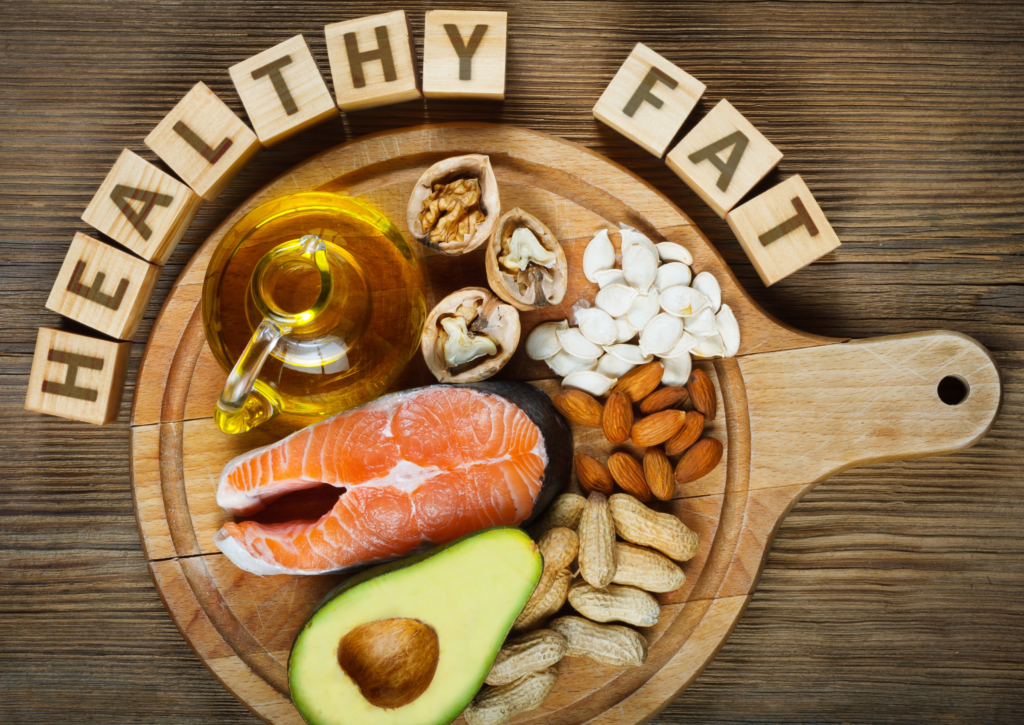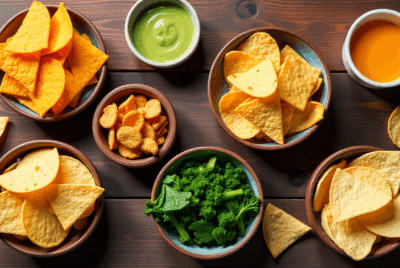10 Common Mistakes Beginners Make on the Keto Diet
Starting the keto diet can be an exciting journey toward better health and weight loss. However, as a beginner, it’s easy to make mistakes that can hinder your progress or even derail your efforts altogether. Knowing what to avoid can set you up for success.
Embracing the Keto Journey with Awareness
Many beginners start with enthusiasm, only to feel frustrated a few weeks in because they didn’t realize how much mindset, preparation, and patience truly matter. Keto isn’t just another quick-fix diet—it’s a shift in how your body fuels itself, how you think about food, and how you care for your health from the inside out.
Approaching keto with awareness means giving yourself grace as you learn, understanding the why behind the changes, and taking time to listen to your body. It’s about progress, not perfection. When you’re intentional—hydrating properly, fueling with real foods, and staying patient through the adjustment phase—you’ll discover that keto can bring more than weight loss. It can bring clarity, balance, and renewed energy for life.
If you’re just beginning your keto journey and want to avoid these common mistakes, my FREE 7-Day Keto Meal Plan is a great place to start. It’s designed especially for women in their 40s and 50s who want to feel more energized, balanced, and confident with their food choices—without the confusion or overwhelm.
Here, we’ll explore the ten most common mistakes beginners make on the keto diet and provide tips on how to avoid them.
- Not Drinking Enough Water
Why It’s a Mistake: Dehydration is a common issue when starting the keto diet. The reduction in carbohydrate intake leads to a loss of water and electrolytes from the body.
How to Avoid It:
- Aim to drink at least 8-10 glasses of water a day.
- Include electrolytes in your diet through foods like avocados, nuts, and leafy greens.
- Consider electrolyte supplements if necessary.
- Eating Too Many Carbs
Why It’s a Mistake: The keto diet is all about maintaining a low-carb intake. Consuming too many carbs can prevent your body from entering ketosis, the metabolic state where you burn fat for fuel.
How to Avoid It:
- Track your carb intake using apps like MyFitnessPal or Carb Manager.
- Stick to keto-friendly foods like meats, cheeses, and low-carb vegetables.
- Read food labels to check for hidden carbs.
- Ignoring Electrolytes
Why It’s a Mistake: Electrolytes (sodium, potassium, and magnesium) are crucial for maintaining energy levels and preventing the dreaded “keto flu.”
How to Avoid It:
- Add a pinch of salt to your meals.
- Eat electrolyte-rich foods like spinach, nuts, and seeds.
- Consider taking an electrolyte supplement.
- Not Eating Enough Fat
Why It’s a Mistake: On the keto diet, fat is your primary energy source. Not eating enough fat can leave you feeling hungry and fatigued.
How to Avoid It:
- Include healthy fats in your diet, such as avocado, olive oil, and coconut oil.
- Add fatty cuts of meat, full-fat dairy, and nuts to your meals.
- Don’t shy away from adding butter or cream to your coffee.

- Focusing Too Much on Protein
Why It’s a Mistake: While protein is important, too much can kick you out of ketosis because excess protein can be converted into glucose in the body.
How to Avoid It:
- Balance your macronutrient intake: around 70-75% fat, 20-25% protein, and 5-10% carbs.
- Choose fatty cuts of meat over lean ones.
- Use a macro calculator to help you stay within the right ranges.
- Not Planning Meals Ahead
Why It’s a Mistake: Lack of planning can lead to poor food choices, especially when you’re hungry and in a hurry.
How to Avoid It:
- Plan your meals and snacks for the week.
- Prep ingredients in advance to make cooking easier.
- Keep keto-friendly snacks on hand to avoid temptation.
- Expecting Immediate Results
Why It’s a Mistake: The keto diet can lead to significant weight loss, but it’s not always immediate. Unrealistic expectations can lead to disappointment and quitting.
How to Avoid It:
- Be patient and give your body time to adjust.
- Track your progress with measurements and photos, not just the scale.
- Celebrate non-scale victories like increased energy and mental clarity.
- Overlooking Hidden Carbs
Why It’s a Mistake: Many foods contain hidden carbs that can add up quickly and kick you out of ketosis.
How to Avoid It:
- Read food labels carefully.
- Be cautious with sauces, dressings, and processed foods.
- Opt for whole, unprocessed foods whenever possible.
- Not Getting Enough Sleep
Why It’s a Mistake: Poor sleep can affect your hunger hormones and lead to cravings, making it harder to stick to the keto diet.
How to Avoid It:
- Aim for 7-9 hours of sleep per night.
- Create a relaxing bedtime routine.
- Avoid caffeine and electronic devices before bed.
- Giving Up Too Soon
Why It’s a Mistake: The initial phase of the keto diet can be challenging, but giving up too soon means you won’t experience the full benefits.
How to Avoid It:
- Commit to sticking with the diet for at least a month.
- Join keto communities for support and motivation.
- Remind yourself of your reasons for starting the diet in the first place.
Conclusion: Grace Over Perfection on Your Keto Journey
The keto journey isn’t about doing everything perfectly—it’s about learning, growing, and showing up for yourself every day. You’ll make adjustments along the way, and that’s completely normal. Each small choice you make—whether it’s drinking more water, choosing real foods, or giving your body time to adapt—moves you closer to lasting health and balance.
If you approach keto with awareness, patience, and faith, you’ll discover that it’s not just about changing what’s on your plate—it’s about transforming your mindset and honoring your body as the amazing creation it is.
So, take a deep breath, give yourself grace, and keep going. Your journey toward better health is worth it. And remember—you’re never alone. With community, faith, and consistency, keto can become not just a diet, but a joyful, sustainable way of life.
10 Common Mistakes Beginners Make on the Keto Diet
1. Why do I feel tired or have “keto flu” when I start? When you cut carbs, your body releases water and electrolytes. This sudden loss can cause fatigue, headaches, or dizziness. Stay hydrated and replenish sodium, potassium, and magnesium to ease symptoms.
2. Am I eating too much protein on keto? Yes, it’s possible! Too much protein can convert into glucose through a process called gluconeogenesis, slowing ketosis. Aim for moderate protein—enough to support your muscles but not dominate your plate.
3. Can I do keto without tracking macros? You can, but beginners often benefit from tracking for a few weeks. It helps you learn what balance of fat, protein, and carbs keeps you in ketosis until you can intuitively gauge portions.
4. Is “dirty keto” okay if I stay under my carb limit Technically, yes—but “dirty keto” (processed bars, shakes, and fast food) can stall progress and harm gut health. Focus on whole, nutrient-dense foods for lasting results.
5. How much water should I drink on keto? More than before! Keto is naturally diuretic, meaning you lose water faster. Aim for at least half your body weight in ounces daily, and add electrolytes for balance.
6. Why am I not losing weight even though I’m in ketosis? Common culprits include eating too many calories, hidden carbs, poor sleep, or stress. Remember—keto isn’t magic; it’s still about balance, consistency, and whole foods.
7. Can I have cheat days on keto? Cheat days can kick you out of ketosis and cause energy crashes. Instead, plan “treat meals” with keto-friendly versions of your favorites to stay satisfied without derailing progress.
8. What’s the biggest mistake women over 40 make on keto? Many under-eat or skip fats, which are essential for hormone balance and energy. Don’t fear healthy fats—avocado, olive oil, nuts, and salmon are your friends!
9. How long does it take to get into ketosis? It varies! Most people enter ketosis within 3–7 days, depending on carb intake, activity level, and metabolism. Stay patient and consistent—your body will adapt.
10. How can I stay motivated when results are slow? Focus on non-scale victories: better energy, improved mood, clearer skin, or reduced cravings. Celebrate small wins and remind yourself—this is a lifestyle, not a sprint.




